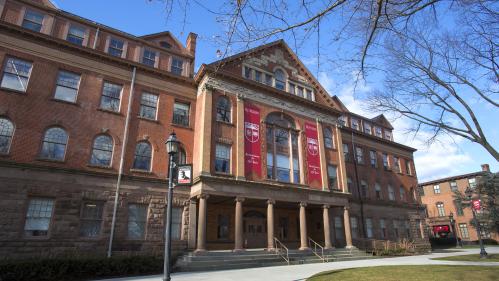Mentoring Resources
Office of Postdoctoral Advancement

Accordion Content
-
Successful postdoctoral experiences are based on intentional conversations, careful planning, healthy work/life integration, professional growth, and career preparedness. The Postdoc Academy has created evidence-based toolkits to support postdocs and their mentors in having productive conversations and acting upon all these topics key to postdoc success.
-
The National Research Mentoring Network (NRMN) is an online community and resource dedicated to help you develop your career through diverse, collaborative mentorship.
It is open to researchers across all career stages in the biomedical, behavioral, clinical, and social sciences. -
Effective Research Mentoring of Undergraduates Workshop (STEM/Biomed)
This virtual workshop use techniques and case studies to teach PhD students and Postdoctoral Fellows tools and skills to better mentor undergraduate students in a laboratory setting.
-
The AAMC compact between postdoctoral appointees and their mentors is a framework for aligning the postdoctoral researcher mentor-mentee relationship.
A successful mentee-mentor relationship requires commitment from the postdoctoral researcher, mentor, and institution. This document offers a set of general guidelines that are meant to initiate discussions at the local and national levels about the mentee-mentor relationship.
Possible Uses
The compact might be used as is, or as modified in accordance with local circumstances. Among the potential uses that have been suggested are the following:
-
As an attachment to offer letters from mentors to postdoctoral appointees
-
As part of the orientation for new postdoctoral appointees
-
As a component of the appointee-mentor annual evaluation process
-
As part of a contract that could be signed by the postdoctoral appointees and their mentors as a pledge to uphold its commitments
-
As a recruitment tool to signify a programmatic commitment to postdoctoral appointees
-
As part of the orientation for new faculty
-
As a topic to be discussed in faculty mentorship programs
*Source: https://www.aamc.org/initiatives/research/postdoccompact
-
-
The AToRT document was created by the the GREAT Appropriate Treatment of Research Trainees (AToRT) subcommittee to emphasize the significance of creating supportive and inclusive training environments for graduate students and postdoctoral researchers.
The document has three main goals: to establish fundamental principles for nurturing these environments, to identify inappropriate behaviors that undermine them, and to provide a framework for addressing these issues that can be customized to individual institutions.The ultimate aim is to foster a positive and respectful research culture that benefits all trainees.

Get in Touch
Office of Postdoctoral Advancement
7 College Avenue, 4th Floor
New Brunswick, NJ 08901
Hours: Monday–Friday, 8:30 a.m. to 4:30 p.m.